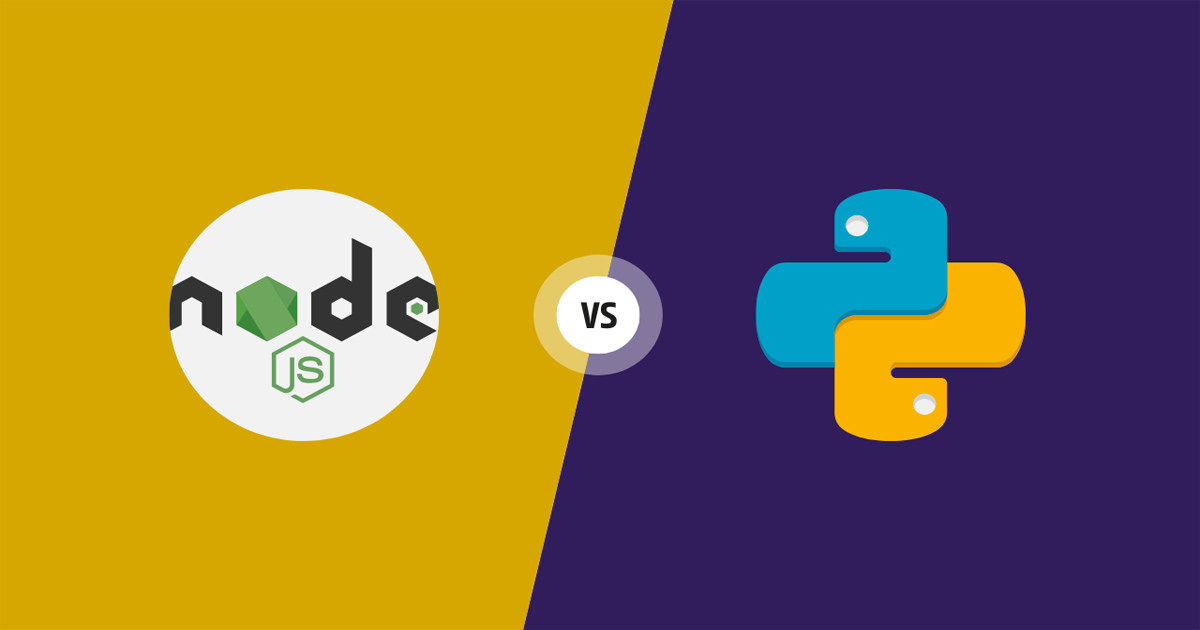When it comes to selecting the right technology for your business, understanding Node.js vs Python is crucial. Both have their unique strengths and are suited to different types of projects. By the end, you should have a clear understanding of which technology is the best fit for your needs.
How to Choose the Right Backend Technology?
Choosing the right backend technology is crucial for any project. One important factor to consider is popularity. From a company’s perspective, a popular technology like Node.js, with a larger talent pool according to SimilarWeb, makes finding qualified web developers easier. Programmers also benefit from popular languages like Python, as highlighted by Stack Overflow’s survey, as they offer wider career opportunities.
Popularity extends beyond just the language itself. Node.js is a dominant force in industries like technology and entertainment, while Python shines in science and education. By understanding these trends, companies and programmers can make informed decisions that benefit the project and their careers.
What is Node.js?
Node.js, released in 2009 by Ryan Dahl, is a cross-platform, open-source JavaScript runtime environment. It is known for its high performance, scalability, and ability to handle real-time data streaming applications, chat applications, and web servers. Node.js runs on Google’s powerful V8 engine and is considered one of the top JavaScript frameworks for web development.
What is Python?
Python, created by Guido van Rossum in 1991, is a general-purpose, high-level programming language. Known for its simplicity and readability, Python offers an extensive set of libraries and packages for building dynamic web, mobile, and desktop applications. It supports various programming standards and is widely used for AI development, big data, automation, and backend development.
Related Post | Flutter vs React Native
Key Differences: Node.js vs Python
Python and Node.js are two prominent backend technologies that dominate the web development landscape. Both boast extensive features and passionate communities, making them excellent choices for various projects. But how do you pick the right one? Buckle up as we delve into a simplified comparison of these powerhouses:
Architectural Differences
- Node.js: Built on an event-driven, single-threaded architecture, Node.js excels at handling multiple requests concurrently.
- Python: Python utilizes a traditional, single-threaded approach, which can be less efficient for handling high volumes of requests.
Speed Demons or Steady Performers?
- Node.js: Generally considered faster due to its asynchronous nature, making it ideal for real-time applications.
- Python: While slower for complex tasks, Python’s readability can contribute to faster development cycles.
Scaling Up for Success
- Node.js: Scales well horizontally by adding more servers, making it suitable for high-traffic web applications.
- Python: The Global Interpreter Lock (GIL) in Python can hinder scalability for CPU-intensive tasks.
Expanding Functionality: A Matter of Choice
- Node.js: Leverages the vast Node Package Manager (NPM) ecosystem for libraries and frameworks.
- Python: Offers a rich collection of libraries through the Python Package Index (PyPI) catering to diverse needs.
Built-in Tools for Every Task
- Node.js: Shines in data-intensive real-time applications, e-commerce platforms, and chatbots.
- Python: Reigns supreme in scientific computing, data analysis, and machine learning projects.
Standing with the Crowd: Community Support
- Node.js: Enjoys a large and active community of developers offering support and resources.
- Python: Boasts a vast and helpful community actively contributing to the language’s growth.
Popularity: In the Limelight
- Node.js: Ranks high in popularity, particularly for web development.
- Python: Maintains widespread popularity across various domains, including web development and data science.
Learning Curve: A Gentle Slope or a Steep Climb?
- Node.js: For those familiar with JavaScript, Node.js offers a smoother learning curve.
- Python: Renowned for its clear and concise syntax, Python is considered beginner-friendly.
See Also | What is the difference between AI and VR?
Node.js vs Python: What to Choose?
The decision between Node.js and Python depends on your specific project requirements. Node.js is the better choice for high-performance, real-time applications with memory and data-intensive needs. Its event-driven, asynchronous architecture and extensive ecosystem make it ideal for scalable and responsive applications.
Python, on the other hand, is suited for projects that require clean and readable code, extensive libraries, and robust error handling. It is particularly effective for AI development, big data, and scientific computing.
Conclusion
Node.js and Python are both worthy contenders in the backend development world, but their strengths cater to distinct project needs. For projects demanding real-time functionality and speedy performance, Node.js takes the lead with its event-driven architecture and efficient code sharing. Additionally, its vast ecosystem provides ample resources for development.
If your project leans towards complex calculations, data analysis, or scientific applications, Python’s strength lies in its clear syntax, extensive libraries, and strong support for AI and data science.
The ultimate choice hinges on your project’s specific requirements and your development team’s preferences. By carefully considering factors like performance, scalability, ease of use, and available libraries, you can make an informed decision and select the ideal backend technology to propel your project forward.








